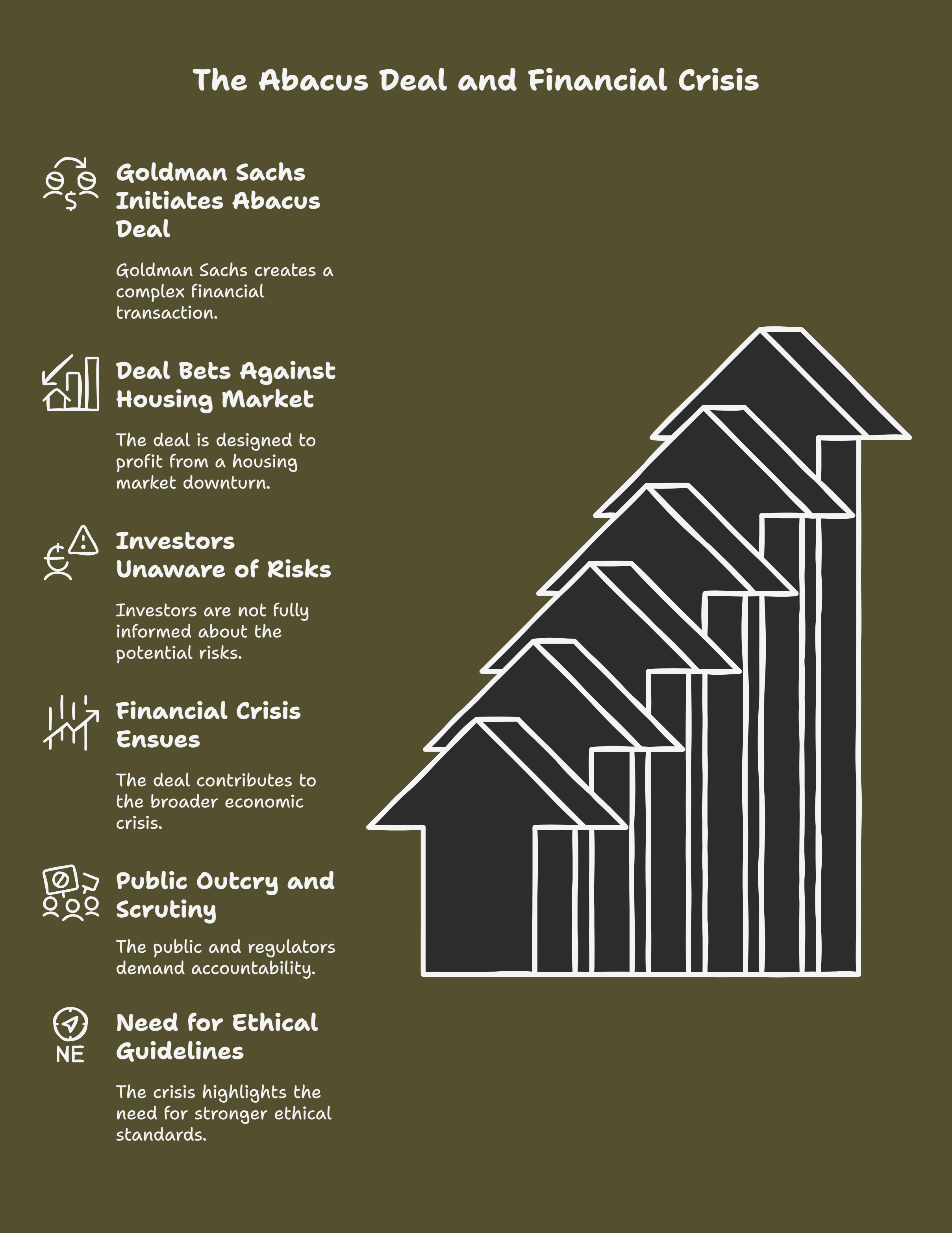When you hear "Wall Street," you probably think of money, power, and… some shady stuff too. Investment banking plays a big role in growing the economy, but it’s also had its fair share of ethical scandals. Let’s take a look at some real-life cases that rocked the industry and made people question where to draw the line between chasing success and doing the right thing.
The Goldman Sachs Abacus Deal
The 2008 financial crisis exposed the fragility of the system and the questionable practices of some key players. Goldman Sachs, a titan of finance, found itself at the heart of the storm with the Abacus deal. This complex transaction, designed to bet against the housing market, ultimately contributed to the economic meltdown. Investors weren't fully informed of the risks, and the deal raised serious questions about transparency and fiduciary duty.
The image of bankers profiting from the misfortune of others became a symbol of the crisis. The ensuing public outcry and regulatory scrutiny highlighted the need for stronger ethical guidelines and greater accountability within the financial sector.

The Libor Scandal
Imagine a system where the very foundation of global interest rates is manipulated. That's exactly what happened with the Libor (London Interbank Offered Rate) scandal. Traders at several major banks colluded to rig this benchmark rate, impacting trillions of dollars in loans and financial products worldwide.
This brazen manipulation eroded trust in the financial system. It revealed a culture where profit maximization overshadowed ethical considerations, leading to criminal charges and billions in fines for the banks involved.
Insider Trading Cases: A Recurring Theme
From Raj Rajaratnam of the Galleon Group to more recent cases involving prominent figures, insider trading continues to plague the financial landscape. The allure of quick profits by exploiting confidential information is a constant temptation. These cases underline the ongoing struggle to maintain market integrity and fairness.
Imagine being an ordinary investor, competing against those with privileged access to information. It’s a rigged game. The pursuit of equal opportunities and a level playing field is a fundamental principle of ethical finance.
.png)
The Role of Culture and Incentives
While individual greed certainly plays a role, these scandals also reveal deeper systemic issues. The intense pressure to perform, coupled with lucrative incentive structures, can create a toxic environment where ethical boundaries are blurred.
- Performance Pressure: The "up-or-out" culture in many investment banks fosters a cutthroat environment.
- Misaligned Incentives: Reward systems often prioritize short-term gains over long-term sustainability and ethical conduct.
A fundamental shift is needed in how we incentivize and regulate the industry. We need to move away from a purely profit-driven model to one that values integrity and social responsibility.
The Path Forward: Building a More Ethical Wall Street
The scandals discussed here aren't just isolated incidents. They’re symptoms of a deeper malaise. Restoring trust in the financial system requires a multi-pronged approach:
- Stronger Regulations: Clear rules and robust enforcement are essential.
- Cultural Transformation: Fostering a culture of ethics and compliance within financial institutions is crucial.
- Individual Accountability: Holding individuals responsible for their actions is a powerful deterrent.
The future of finance depends on our ability to learn from these past mistakes. Building a more ethical and sustainable financial system is not just a regulatory challenge; it’s a moral imperative.
Dreaming of a finance career? Start with Investment Banking Certification with Jobaaj Learnings.
















